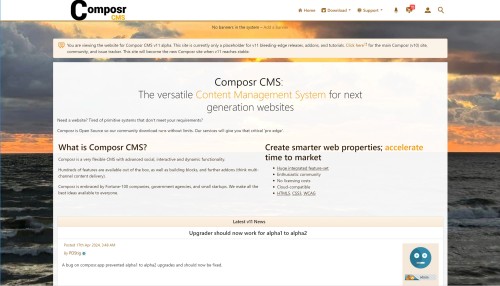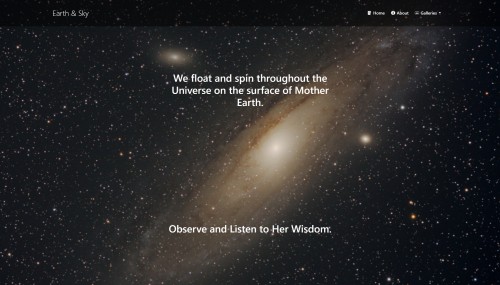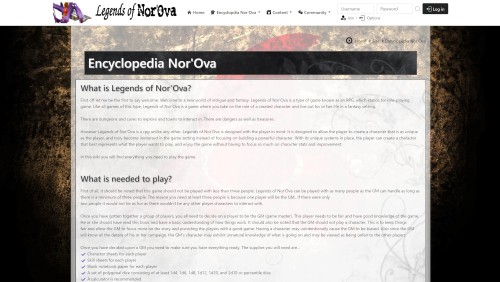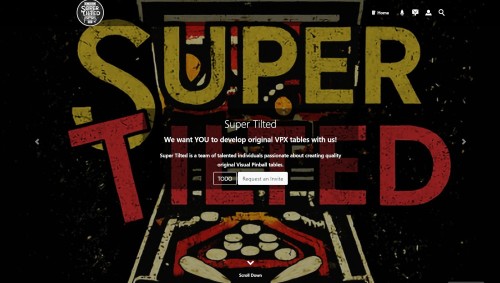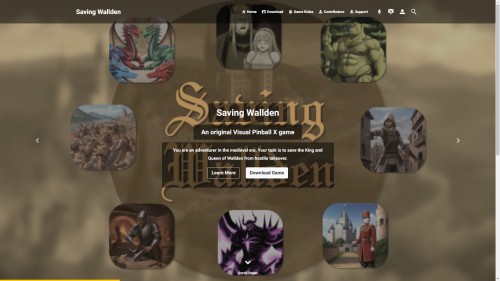Featured Sites: A-Z Index
H
Newest 10 Entries
| Question | Can I use the calendar as a personal diary and keep my entries private? |
|---|---|
| Answer | Yes. When adding an event to the calendar, you can choose to make it public or private. Private events are generally used when someone wants to use the calendar system as a diary. |
| Question | How can I set up reminders for events? |
|---|---|
| Answer | When adding or editing an event, you can enable reminders for yourself and specific user groups. You can also choose how much notice you want for each reminder. Members can subscribe for reminders on an individual event screen. They can also personalize their reminder settings, including removing reminders or having multiple reminders at different times. Members can also subscribe for notifications to specific event types to be notified whenever events under those types are scheduled. |
| Question | How can I schedule Commandr commands to run automatically? |
|---|---|
| Answer | To schedule commands, create an event with the "System command" event type. This option needs to be enabled in the configuration first. In the event details, you can specify either a URL for Composr to call or a snippet of Commandr code to execute. Be sure to disable the WYSIWYG editor for this type of event. You'll also need to have the system scheduler configured for the commands to run automatically. |
| Question | Can I add external feeds to the calendar? |
|---|---|
| Answer | Yes, you can add RSS or Atom feeds to your calendar. This lets you view time-based information from external sources alongside your calendar events. |
| Question | What do I do if a recurring event needs to be changed or skipped? |
|---|---|
| Answer | Composr has a "fixing an event" feature to handle changes to recurring events. This is useful if an event needs to be cancelled or rescheduled. You edit the event as if it were a new, standalone event and choose the "Edit with fixing past recurrences" option. This separates the past occurrences from the modified event, ensuring future recurrences reflect the changes. |
| Question | What is the "recurrence pattern" and how does it work? |
|---|---|
| Answer | The recurrence pattern is a powerful tool that defines how often an event repeats. While it might seem complex at first, it provides a lot of flexibility. Think of it as a binary code where each digit represents a time period (like a day or week). A "1" indicates the event occurs, and a "0" means it doesn't. This lets you create complex schedules like "every weekday" (daily with pattern 1111100 if it starts on a Monday) or "every other Tuesday" (weekly on Tuesday with the pattern 10). |
| Question | What are the different views available in the calendar? |
|---|---|
| Answer | The calendar has five views:
You can easily navigate between these views to get different levels of detail and focus on specific periods or events. |
| Question | How do I add events to the calendar? |
|---|---|
| Answer | You can add events in several ways:
Deleting events can be done at the bottom of the event's edit form. You have options for recurring events, such as editing/deleting the specific occurrence, editing/deleting future ones, or all of them. |
| Question | How do I categorize events? |
|---|---|
| Answer | You categorize events using "Event types". Composr provides default types like "Anniversary", "Appointment", "Birthday", "General", "Public Holiday", "Task", "Vacation", and the special "System command" for executing Commandr commands. You can also add your own custom event types to suit your specific needs, such as "Appraisal Session" for a business website. |
| Question | What is an "event" in the Composr calendar system? |
|---|---|
| Answer | An event is any entry in the calendar. Importantly, an event isn't limited to a single point or range in time. Events can recur based on a schedule you define. This makes them very flexible – they can represent anything from one-time appointments to recurring birthdays or even weekly team practices. |
Top 10 Entries
| Question | Can I leave notes for myself or other staff members? |
|---|---|
| Answer | Yes, the Admin Zone includes a dedicated "Notes" block for you and your staff to leave messages and reminders. This space serves as a shared communication hub for your team. |
| Question | How can I stay informed about the latest Composr version? |
|---|---|
| Answer | The Admin Zone dashboard displays information about your current Composr version and alerts you if it's not the most recent one. A link will be provided to guide you through the upgrade process if necessary. |
| Question | What is the action log, and how can I use it? |
|---|---|
| Answer | The action log keeps track of administrative and content-related actions on your website. It allows you to see who did what and when, providing valuable insights into site activity and accountability. You can filter the log to focus on specific actions, users, or timeframes. It's also helpful for revisiting previous tasks by providing links to the relevant content or settings. Go to the Admin Zone > Audit > Action logs. A quick action log block is also available on the dashboard. |
| Question | What is the staff checklist in the Admin Zone? |
|---|---|
| Answer | The staff checklist is an automatically generated list of tasks that need attention on your website. It includes routine updates like assigning new awards or adding news, as well as less frequent but important tasks like backups, software updates, newsletters, content validation, and periodic content reviews. You can customize the frequency of these tasks in the 'Configuration' section under 'Administrative options'. You can also add your own custom tasks. Anyone with Admin Zone access can see the checklist. So you can collaborate with your highest level staff on it. |
| Question | I'm lost! How can I find a specific feature or setting? |
|---|---|
| Answer | The Admin Zone has a powerful search feature that you can access under the Help icon. It searches through various categories, including configuration options, privileges, templates, language strings, administrative modules, and more. You can even refine your search by adding "@sectionname" to the end of your search term to limit results to a specific section. |
| Question | How do I access the Admin Zone? |
|---|---|
| Answer | You can access the Admin Zone by clicking the "Admin Zone" link located at the bottom of every page on your website, assuming you are using the default theme. If you are logged in as a staff member, your user menu will also have a link to the Admin Zone or the Content Management Zone. You might be asked to log in again / confirm your session for security reasons. |
| Question | What is the Admin Zone? |
|---|---|
| Answer | The Admin Zone is a special section of your Composr website that allows authorized staff members to perform various administrative tasks. It serves as the central hub for managing content, configuring settings, monitoring activity, and maintaining the overall health of your website. |
| Question | What should I avoid doing in Composr to maintain accessibility? |
|---|---|
| Answer | Avoid using Comcode tags or other HTML elements that create dynamic effects in the user's browser, such as ticker and jumping. These can have a negative impact on navigation and scrolling. Provide alternate information for multimedia you upload so those with auditory impairments can still understand the content. Avoid creating multiple content items with the same title, as this can lead to accessibility issues and general user confusion. |
| Question | How does Composr handle forms for accessibility? |
|---|---|
| Answer | The web standards checker ensures that form labels are properly positioned and explicitly associated with their controls. It also checks that form elements have a logical tab order and are keyboard operable. |
| Question | How does Composr ensure accessible data tables? |
|---|---|
| Answer | The web standards checker enforces proper markup for data tables, including identifying row and column headers, and associating data cells with header cells. It ensures that tables are not used for layout (flex boxes and HTML grids are preferred for mobile responsiveness) unless they make sense when linearized. Composr provides summaries for tables to aid non-visual user agents in understanding their structure and content. |


